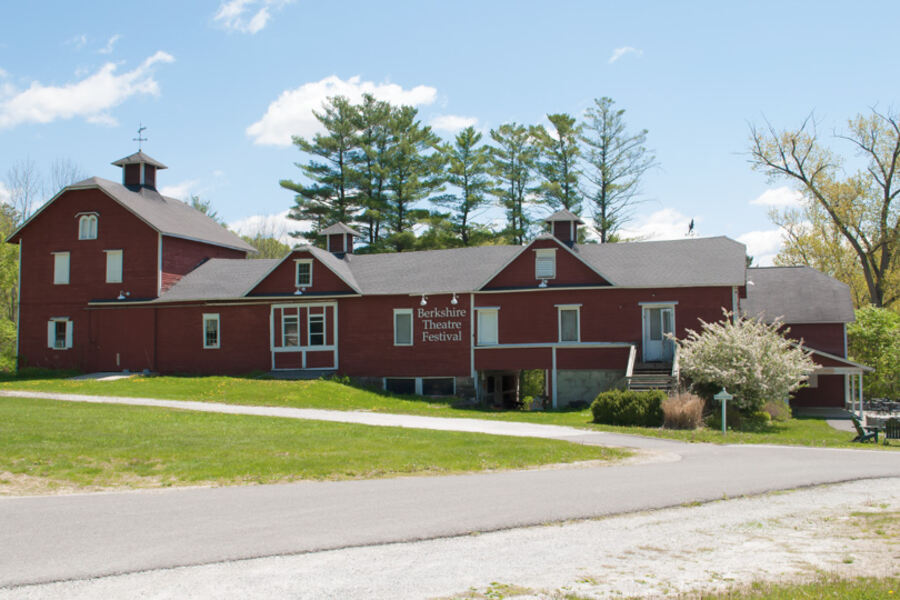Nestled in the mountains of western Massachusetts, Berkshire Theatre Group has a long history of producing live performance, including theatre, dance, music, and more. Founded as the Berkshire Playhouse in 1928, the theatre has featured performances by everyone from Ethel Barrymore to Al Pacino over the years, and grown into a full-scale nonprofit organization called Berkshire Theatre Festival, with a community-driven mission and robust educational programming.
The company has produced shows every year since its founding, surviving the Great Depression, the Second World War, and more recently, the Covid-19 pandemic. The Festival combined with the newly restored Colonial Theatre in Pittsfield in 2010 to create Berkshire Theatre Group, whose grounds now encompass two historic landmarks. Berkshire’s four venues are divided between two campuses, with the Fitzpatrick Main Stage (314 seats) and the Unicorn Theatre (120 seats) in Stockbridge, and the Colonial (700 seats) and the Garage performance space (flexible seating) in Pittsfield. We spoke recently via email with artistic director, CEO Kate Maguire.
AMERICAN THEATRE: Who founded Berkshire Theatre Group, when, and why?
KATE MAGUIRE: Interesting question. The first artistic director of Berkshire Theatre Festival was Alexander Kirkland. He opened the doors of our “Playhouse” nearly a century ago. The theatre was founded on the inspiration of the great thespian Eva Le Gallienne. Eva was the leader of the Civic Repertory Company in NYC and she was determined to support theatres being a part of communities around the country. She visited the Roosevelts often with hopes of founding a national endowment for the arts. The NEA would not be founded until 1965, but Le Gallienne encouraged many of her company artists to open theatres.
Civic Repertory Company member Kirkland, with support from the Stockbridge, Mass. community, helped open the Berkshire Playhouse in 1928. Eva starred in the first production of A Cradle Song by G. Martinez Sierra (translated by John Garrett Underhill). This would be the first of many performances by Le Gallienne and the first artistic institution that would soon multiply by many, making the Berkshires a cultural destination.
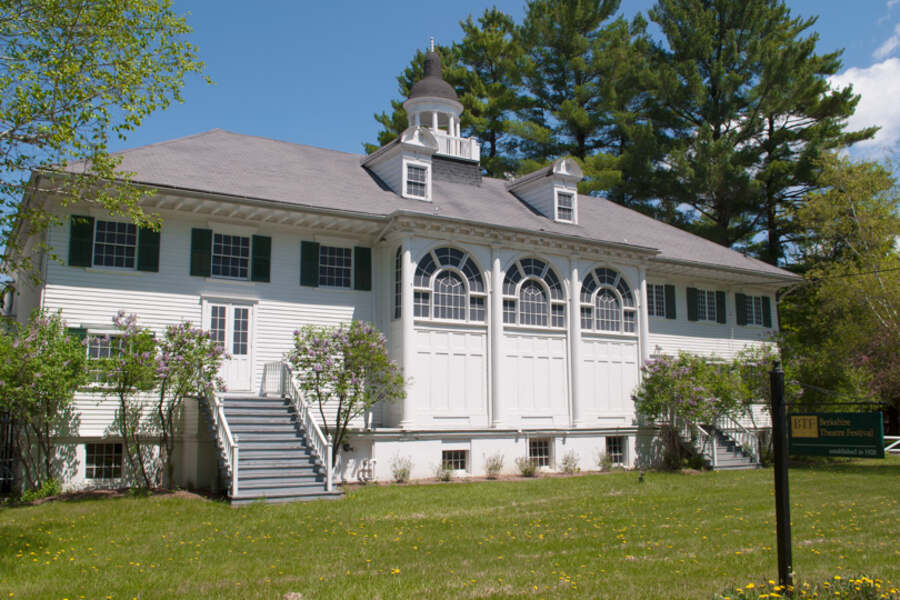
During the 1950s a group of theatre students created a second space on the Stockbridge campus, calling it the Unicorn Theatre. In 2010, Berkshire Theatre Festival merged with the Colonial Theatre in Pittsfield to become Berkshire Theatre Group. The Colonial had been built as a vaudeville house, closed down for 50 years, and reemerged thanks to the committed efforts of concerned citizens and former First Lady Hillary Clinton, who declared the building a National Treasure. Both the Playhouse in Stockbridge and the Colonial are registered as historic landmarks. All three theatres hold the spirits of the building over the past century of the regional theatre movement.
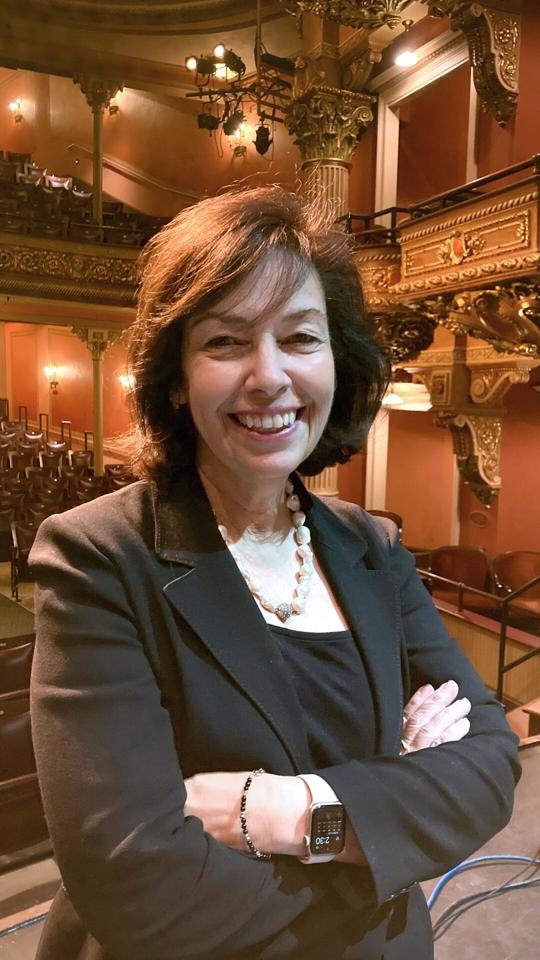
Tell me a little bit more about yourself and your background.
I’ve lived and worked in the Commonwealth of Massachusetts my entire life. Born and raised in Lowell, after graduating from Boston College, I performed in Boston and gained administrative experience at the Lyric Stage in Boston. From there, I moved to Western Mass., working as an actor and administrator at Shakespeare & Company in Lenox, Stage West in Springfield, and then finally came to Berkshire Theatre Festival in 1995. My current title is artistic director, CEO which of course still indicates a responsibility to both the work on the stage and efforts needed to support that work.
What sets BTG apart from other companies in your region?
We operate stages in two distinct communities on two campuses. We oversee three landmark buildings and our theatres hold the histories of Stockbridge and Pittsfield. We are the originators of the cultural facilities in our community; in fact, we are older than the Tanglewood Music Festival. Our responsibility to fulfill the vision of Eva Le Gallienne, who dreamed of bringing theatre to the broadest audience possible, is still at the center of all we do. To go through the archives of our theatre is an insight into the artists who have developed the American theatre. Because of our history, we also know we must create the environment for the next generation of performance artists. Our past gives us a unique perspective and level of experience to know that the arts allow us all to see what lies in the human heart and to better understand the world we presently live in.
Tell me about your favorite theatre institution other than your own, and why you admire it.
I am not meaning to avoid the question, but the truth is that in these ridiculously difficult times for the arts, I admire anyone standing and continuing their mission to create and support artists.
How do you pick the plays you put on your stage?
Associate artistic director David Auburn is instrumental in bringing new works and introducing directors to our theatre. There is a core group of artists who also bring ideas and projects to my attention. The list is long of plays we hope to get done, and will only be added to with time. Equally important is to pay close attention to our audiences and to pay attention to the waves of cultural and political shifts of the times we live in. Always we make sure all eyes are on the drama on the stage. By that I mean, we must always work to provide a space for the artist to do their best work. I would like to think we go into a project knowing what the artist, director, and playwright want to achieve, and then a company is built to support that vision. And most certainly we hope everyone who comes to our theatres enjoy themselves. The pleasure of going to the theatre is so important!
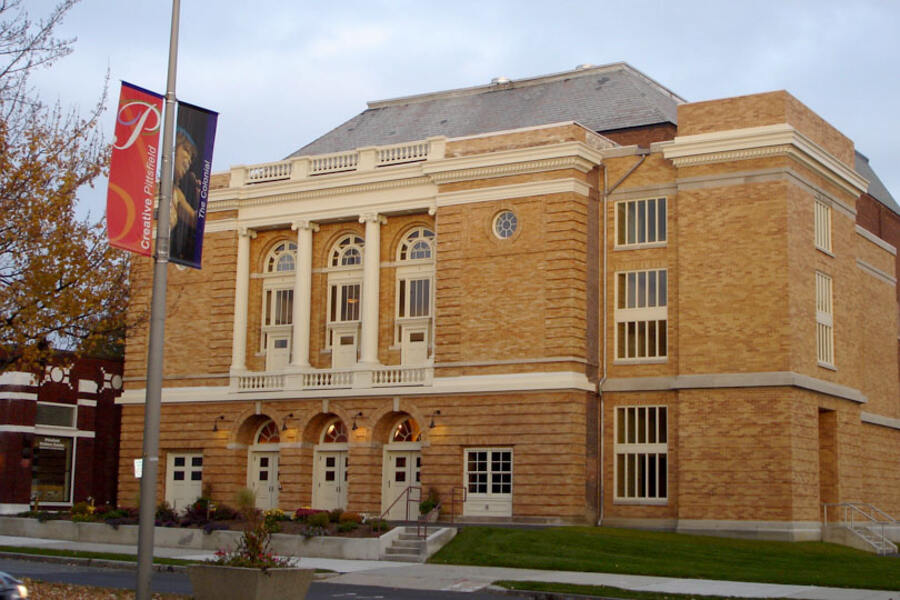
What’s your annual budget, and how many artists do you employ each season?
Our budget is approximately $4.8 million and we employ about 600 artists each season. We not only produce plays, but we also bring in comedians, musical performers, and this year, a circus will join the lineup.
How has BTG fared since the end of the COVID lockdown?
We produced through it all. Berkshire Theatre Group has produced every year since its founding in 1928. In August 2020, we were the only theatre in the country given permission to perform a musical by AEA, SDC, and USA. We presented the Stephen Schwartz musical Godspell under a tent on our grounds in Pittsfield, and in December 2020, against all odds, we produced a production of Holiday Memories outdoors on our property in Stockbridge. Each production was monumental, and audiences were so grateful to be in the midst of live performances. We have been fortunate to have been supported strongly in our ticket sales. Our audiences have come to trust us and depend on our continuing. However, we are challenged by dramatically rising costs and in holding our donations at a level of sustainability. We go forward, but the times are very different and difficult.
How has your theatre responded to calls for racial justice and more equitable working conditions that have arisen with new urgency in the past few years?
We recognized early on that the model of internships that we had was not a fair system. We made changes in the system some time ago. We work hard to balance our budget, and at the same time recognize that the not-for-profit system is built on a dependency of donor support and ticket revenue and cannot be built on the sacrifices of our employees.
Berkshire County as a whole is working to open doorways to support greater diversity in our region and must continue these efforts. My life and my children’s have been enriched for having worked in the performing arts. I understand that it is part of the legacy of the institution founded by Eva Le Gallienne to make sure that everyone can benefit and we better our world by opening creative doors.
Our theatres were built on grounds once inhabited by the Munsee Tribe of the Mohican Nation. We have a responsibility to recognize injustices and to consistently and consciously educate ourselves on better practices. Thankfully we have worked and continue to work with organizations and individuals who have helped to provide us with better tools to promote fairer working conditions and examine our own personal patterns of behavior for the better.
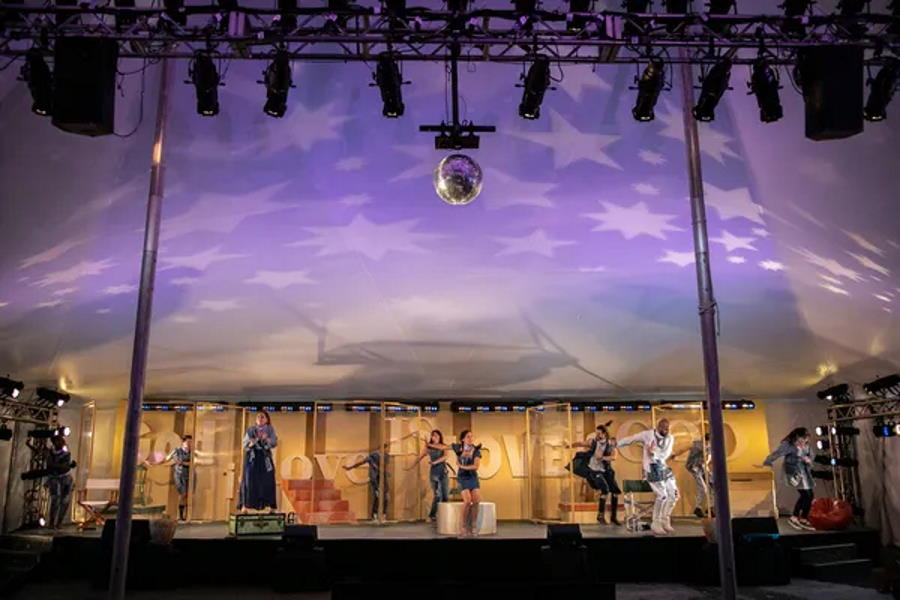
What show are you working on now? Anything else in your season you’re especially looking forward to?
I’m pulling together our season of plays and performances for 2024, and in doing so working with an incredible group of artists who educate me daily on the power of the arts. I am looking forward to standing in the back of our theatres watching these artists bring their work to life and to sensing the transformation of an audience. I just love recognizing an audience coming into our spaces. Audiences enter from whatever has been going on in their life and they leave transformed. There is real joy in knowing that our creative laboratories truly produce change in human behavior and sometimes change hearts and minds for the better. That’s why they come to our performing spaces, to experience change.
We just announced that our musical in our Colonial Theatre in Pittsfield will be Mel Brooks’s Young Frankenstein, directed by Stuart Ross and choreographed by Gerry McIntryre, a tri-production with Bay Street Theatre and Geva Theatre Center. When I say this to people, I love seeing them broadly grin or giggle in response to the title. It’s also satisfying to support directors like Lizzie Gottleib, Tor Krautter, David Auburn, Kat Yen, Kathy Jo Grover, David Adkins, Isadora Wolfe, and Eric Hill, who will put their distinct marks on several of the other productions we will produce. I also look forward to working with Roundabout Theatre to present some readings of new plays by playwrights they continue to support so powerfully.
What’s the strangest or funniest thing you’ve ever seen or put on your stage?
I’m writing a book to be published after I die—isn’t every artistic director? The strangest and funniest really can’t be spoken about just yet…
What are you doing when you’re not doing theatre?
I’m spending time with my three children and their partners, my husband, and my five-year-old granddaughter Olympia and her eight-year-old brother Theo. They each amaze me.
What does theatre—not just your theatre, but the American or world theatre—look like in, say, 20 years?
My mother’s family was from Mani in Greece. My father’s family was Irish. The roots of theatre run deep in those countries. Twenty years, 200 years, 2000 years—the theatre is always recreating itself, it always has. The human race will always need to gather to tell our stories. What it looks like, I have no idea, but we go on.

